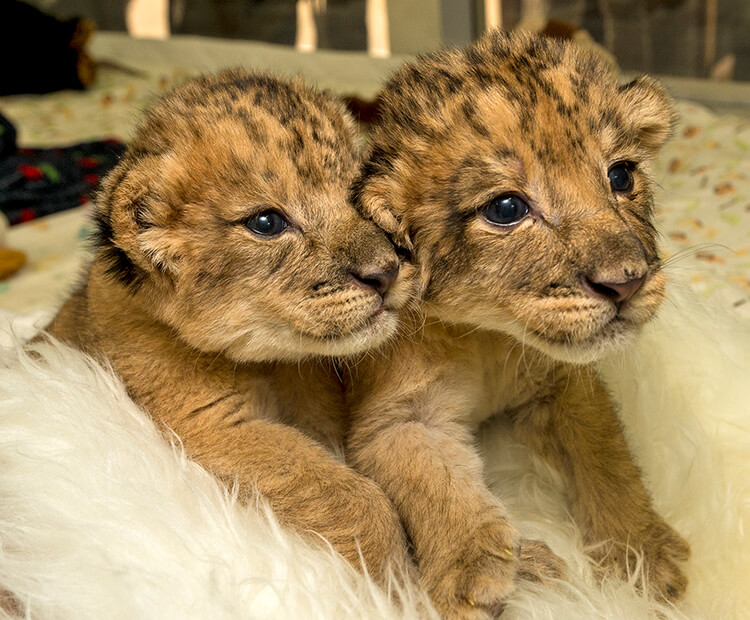
Baby Lions: The Cubs of the Savanna
In the heart of the African savanna, where the sun beats down relentlessly and the acacia trees cast long shadows, there exists a captivating world of baby lions. These adorable creatures, known as cubs, are the embodiment of innocence and playfulness, yet they possess the potential to become the apex predators of their realm.
Birth and Early Development
Baby lions are born after a gestation period of approximately 110 days. A litter typically consists of two to four cubs, although larger litters of up to six have been recorded. The cubs are born blind and helpless, weighing a mere 1-2 pounds. They rely heavily on their mother’s milk for nourishment and protection.
During the first few weeks of life, the cubs remain hidden in a den, usually a secluded spot among dense vegetation or a rocky outcrop. The mother lioness fiercely guards her young, venturing out only to hunt and drink. The cubs spend their time suckling, sleeping, and developing their senses.
Growth and Play
As the cubs grow, they gradually emerge from the den and begin to explore their surroundings. They are naturally curious and playful, engaging in mock fights and chasing after each other. These playful interactions are essential for their physical and social development.
At around 6-8 weeks of age, the cubs start to accompany their mother on hunting expeditions. They observe her techniques and learn how to stalk and capture prey. However, they do not actively participate in the hunt until they are much older.
Socialization and Hierarchy
Baby lions are highly social creatures. They form strong bonds with their siblings and develop a hierarchical structure within the pride. The dominant cub, usually the largest and most aggressive, establishes its position through play and competition.
As the cubs mature, they learn to respect the authority of the pride leader, typically the dominant male lion. They also develop relationships with other members of the pride, including aunts, uncles, and cousins.
Independence and Dispersal
At around 18-24 months of age, baby lions reach sexual maturity. However, they typically remain with their pride for several more years, gaining valuable experience and protection. Eventually, male lions disperse from their natal pride to establish their own territories. Female lions may remain with their pride for life.
Threats and Conservation
Baby lions face numerous threats in the wild. Predators such as hyenas and leopards pose a danger to young cubs. Additionally, habitat loss, poaching, and human-wildlife conflict can impact their survival.
Conservation efforts are crucial to protect baby lions and their habitats. Organizations such as the World Wildlife Fund (WWF) and the African Wildlife Foundation (AWF) work to combat poaching, reduce human-wildlife conflict, and promote sustainable land use practices.
Conclusion
Baby lions are a captivating sight to behold. Their playful antics, adorable appearance, and potential to become formidable predators make them a beloved species in the animal kingdom. By understanding their biology, behavior, and the threats they face, we can contribute to their conservation and ensure their survival for generations to come.
